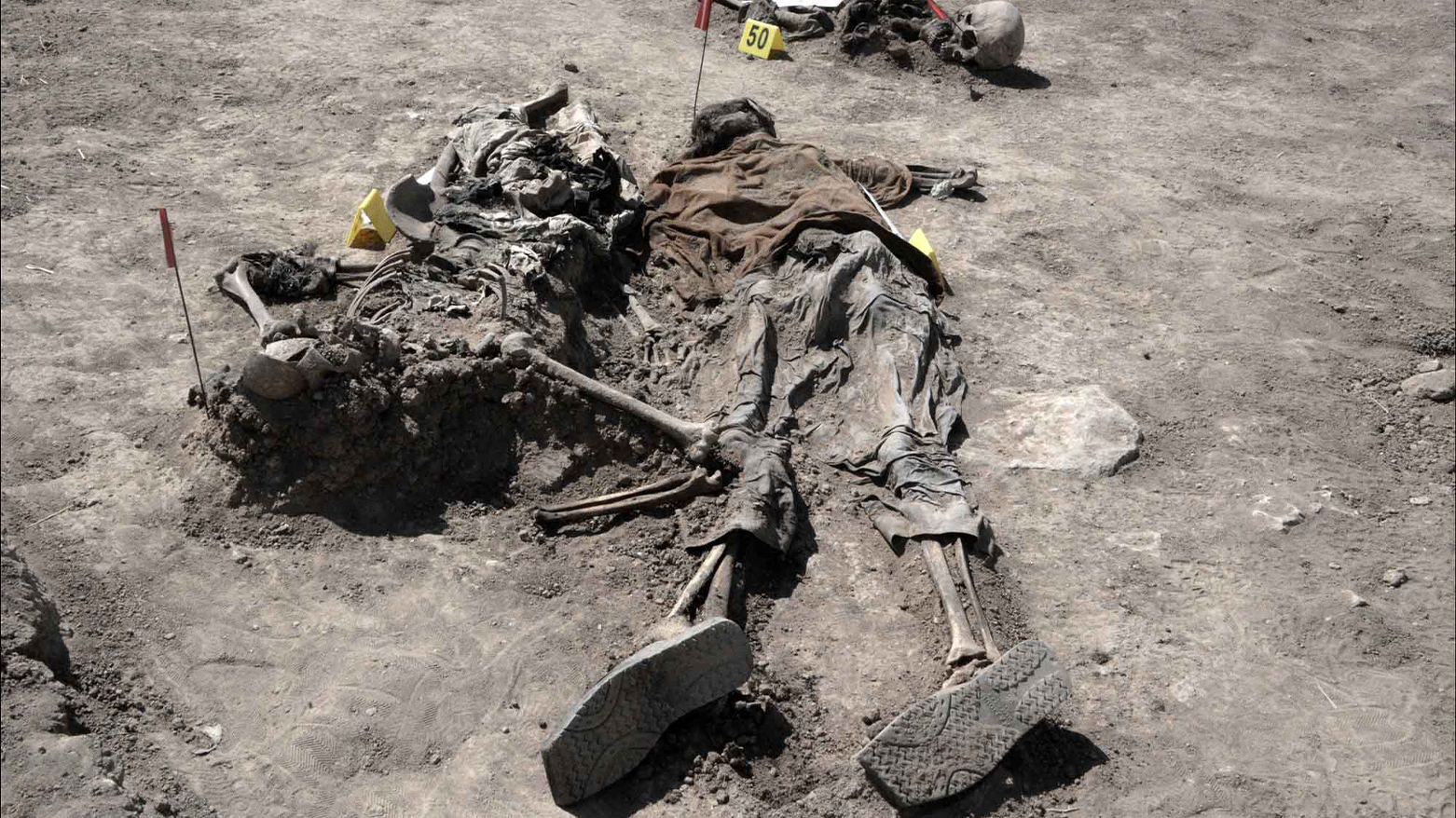Badush Victims' Remains Returned as UN Details Genocidal Massacre
Iraq returns remains of 20 Badush massacre victims, bringing the total to 171. A UN investigation has found reasonable grounds to believe ISIS committed the 2014 killing of approximately 1,000 predominantly Shi'a prisoners with genocidal intent.

ERBIL (Kurdistan24) — The Iraqi Ministry of Health has returned the remains of another 20 victims of the 2014 Badush prison massacre to their families, a somber step in closing a case that the United Nations has since described as a systematic killing operation carried out by ISIS with genocidal intent against Iraq's Shi'a population.
In a statement on Saturday, the ministry confirmed that the latest identifications bring the total number of victims’ remains from the Badush atrocity that have been returned to their families to 171. The remains belonged to individuals from the provinces of Baghdad, Najaf, Babil, Karbala, Dhi Qar, Saladin, and Basra.
The ministry also noted that preparations are ongoing to announce the identification of another group of victims in the near future, as part of a comprehensive plan to bring the Badush prison massacre case to a complete and final close for the grieving families.
The ministry's efforts to provide closure come as an exhaustive investigation by the United Nations Investigative Team to Promote Accountability for Crimes Committed by Da'esh/ISIL (UNITAD) has laid bare the full, horrific scale and legal gravity of the massacre.
UNITAD Findings: A Genocidal Operation
The Badush prison massacre occurred on June 10, 2014, when ISIS militants took control of Mosul and subsequently overran the nearby Badush Central Prison, which held approximately 3,000 inmates.
According to a detailed factsheet and report from UNITAD, which launched its investigation in August 2020, the capture of the prison was "nearly effortless" after a significant number of guards abandoned their posts. ISIS fighters then freed most of the Sunni prisoners, in what evidence indicates was a pre-planned operation to swell their ranks.
However, for the other inmates, a different fate awaited. ISIS militants separated the remaining prisoners, taking between 1,000 and 1,500 to several locations around the prison, including Badush Valley and the Badush Cement Factory. There, they separated them again, this time based solely on their religion.
UNITAD’s factual findings conclude that ISIS members then executed approximately 1,000 predominantly Shi'a prisoners. The primary victims were Shi'a men from various regions of Iraq, but the investigation notes that Christian prisoners, as well as Sunni prisoners who tried to help or cover for the Shi'as, were also targeted. Some who managed to escape were captured by ISIS up to ten days later and killed.
The investigation, conducted in close cooperation with Iraqi judicial authorities, the Mass Graves Directorate, and the Medico-Legal Directorate, has been extensive. The team interviewed more than 160 witnesses, including survivors, escapees, and prison guards, and collected more than 370 judicial statements and 70 photos. As part of the investigation, the remains of over 600 victims have been exhumed from mass graves.
The UN team's legal conclusion is chilling. The report states there are "reasonable grounds to believe that: ISIL (Da'esh) maintained a genocidal policy against Shi'as of Iraq, mainly by targeting and killing adult male members of that group."
Specifically regarding the massacre, it concludes that ISIS members participating in the operation "possessed genocidal intent." UNITAD further notes that to reach a full finding of genocide, the Badush killings must be corroborated with other instances of ISIS atrocities, such as the massacre at the Tikrit Air Academy and crimes against Shi'a Turkmen and members of the Shabak community.
The acts may also amount to crimes against humanity—including murder, extermination, torture, and persecution—and war crimes.
In September 2024, a confidential report on the massacre was shared with the Iraqi Supreme Judicial Council. To visualize the atrocities, UNITAD also collaborated with the research group SITU to produce a video detailing the attack and the team's findings.
